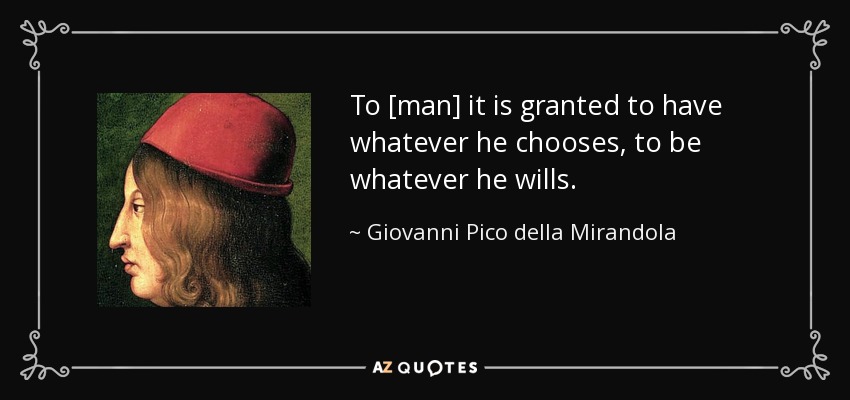For example, we can begin by looking at what Mirandola discusses about man having immeasurable potential.

We then can look to other sources that show a significant focus being placed on self improvement through learning. In the excerpt from Utopia, book two, titled "Utopians' Love of Learning", we read of Sir Thomas Moore's experience in a classroom as students are learning. I was very interested in the overall tone that he writes with. Looking beyond the positive things he has to say about this amazing learning experience that he was observing in students, one can also read between the lines to note the positive attitude he is writing with, as if there is hope for the future that he can't contain. This is what I feel and think of when I read of the Renaissance period.
From numerous sources one can find this same optimism for the future, and positive attitude about the nature and potential of man. Rather than a focus on the bare necessities of Middle Age life such as war and food, people are beginning to seek out more, whether it be in learning, in self improvement, or in seeing the good in others. Further evidence of this attitude of improvement and "expansion" can be seen in Sir Walter Raleigh's documentation of the discovery of Guiana. As one reads between the lines, they are able to understand that this time period was one of exploration and discovering new and better things, physically and spiritually.

I thought this was an interesting topic. It reminds me of our class discussion when talking about how the people in the dark or middle ages didnt know they were living in that time period. People tend to be positive that their generation will improve things for the future.
ReplyDeleteI really appreciated this post. I feel like I have spent a lot of time focussing on the Renaissance as looking backwards towards antiquity, but like you said, they didn't stop there. They used what they had been in the the past to develop hope for what they could become in the future.
ReplyDelete